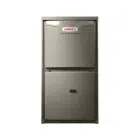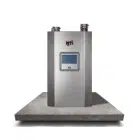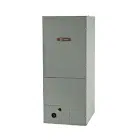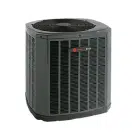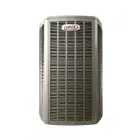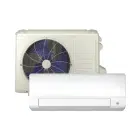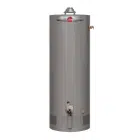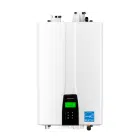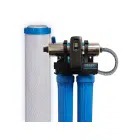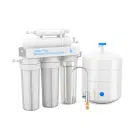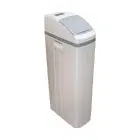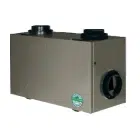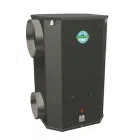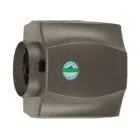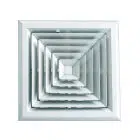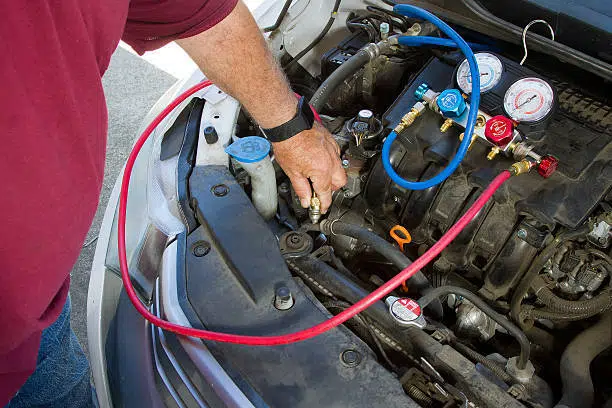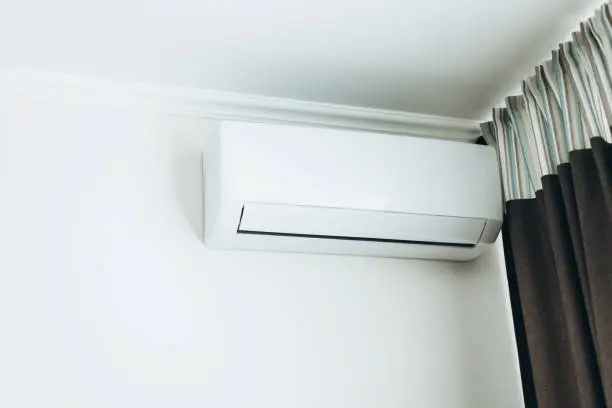
Table of Contents
Air conditioning is an essential part of modern life, especially during the hot summer months. However, nothing is more frustrating than discovering that your air conditioning unit is not working properly. One common issue that many homeowners face is the formation of ice on the inside of their AC unit.
This problem can cause your unit to malfunction, reduce its efficiency, and even lead to permanent damage if not addressed promptly. In this guide, we will walk you through the steps you should take when you notice ice forming on your AC unit, help you understand why it happens, and provide long-term prevention strategies to keep your system running smoothly.
What Is the Problem?
To understand why ice forms on your air conditioning unit, it’s important to have a basic understanding of how the system works. Your AC unit operates on a refrigeration cycle that involves the evaporation and condensation of a refrigerant. Here’s a simplified breakdown:
- Refrigerant Cycle: The refrigerant in your AC unit absorbs heat from the indoor air and then releases it outside. This process involves the refrigerant changing from a liquid to a gas and back to a liquid.
- Evaporator Coil: Located inside your home, this coil is responsible for absorbing heat from the air. When the refrigerant inside the coil absorbs heat, it evaporates, cooling the air.
- Condenser Coil: Located outside your home, this coil releases the absorbed heat into the outdoor air, turning the refrigerant back into a liquid.
Ice forms on the evaporator coil when something disrupts this cycle. Common causes include:
- Restricted Airflow: When airflow is limited, the evaporator coil gets too cold, causing condensation to freeze.
- Low Refrigerant Levels: Insufficient refrigerant can lower the pressure and temperature in the evaporator coil, leading to ice formation.
Dirty Coils: Dirt and grime on the coils can impede heat absorption, causing the coil to freeze up.
Symptoms of Ice Formation
Identifying the signs of ice formation early can help prevent further damage. Look out for:
- Visual Signs: Ice or frost on the coils, pipes, or even the exterior of the unit.
- Performance Issues: The AC unit is running but not cooling your home effectively.
- Increased Energy Bills: A frozen AC unit works harder, leading to higher electricity consumption.
- Unusual Noises: Strange sounds such as hissing or gurgling can indicate refrigerant issues or ice buildup.
If you notice any of these signs, contact us for professional HVAC assistance before the problem becomes too serious.
Immediate Steps to Take
The first and most crucial step when you notice ice on your AC unit is to turn it off immediately. Running the unit while it’s frozen can cause significant damage to the compressor and other components. Here’s how to safely shut down your system:
- Set the Thermostat to Off: Switch your thermostat to the ‘off’ position to stop the cooling cycle.
- Turn Off the Power: For added safety, turn off the power to the AC unit at the breaker box to prevent any accidental operation.
Once the AC unit is off, you need to allow the ice to melt completely. This can take several hours depending on the severity of the ice buildup. To expedite the process:
- Use a Fan: Placing a fan near the unit can help circulate air and speed up the melting process.
- Monitor for Water: Be prepared for water runoff as the ice melts. Place towels or a drip pan to catch any water and prevent damage to your flooring.
Check out the most common air conditioner problems and solutions in our previous article via the link below.
https://thehvacservice.ca/air-conditioner-troubleshooting-most-common-problems-solutions/
How to Diagnose the Underlying Cause
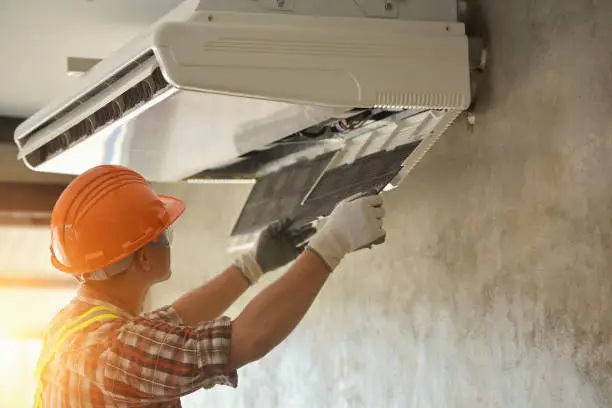
After the ice has melted, it’s time to diagnose what caused the issue. Addressing the root cause is essential to prevent recurrence.
Check Air Filters
Dirty or clogged air filters are one of the most common causes of restricted airflow. To check and replace your air filters:
- Locate the Filter: The air filter is typically located in the return air duct or the air handler.
- Inspect the Filter: Remove the filter and hold it up to the light. If you can’t see light through it, it’s time to replace it.
- Replace the Filter: Choose a filter with the correct dimensions and MERV rating for your system. Insert the new filter, making sure it’s properly seated.
Inspect Airflow
Ensure that air can flow freely through your system by checking the following:
- Vents and Registers: Make sure all vents and registers are open and not blocked by furniture or other objects.
- Ductwork: Inspect the ductwork for any blockages or damage that could impede airflow. Professional duct cleaning might be necessary if you suspect significant blockages.
Examine the Coils
Dirty evaporator or condenser coils can prevent proper heat exchange, leading to ice formation. Here’s how to clean them:
- Turn Off the Power: Ensure the unit is powered down to avoid electric shock.
- Access the Coils: Remove any panels or covers to access the coils.
- Clean the Coils: Use a soft brush or a vacuum cleaner to remove dust and debris. For a deeper clean, use a coil cleaner spray following the manufacturer’s instructions.
- Reassemble: Replace any covers or panels once cleaning is complete.
Refrigerant Levels
Low refrigerant levels can cause the evaporator coil to freeze up. Checking and recharging refrigerants is a job for a professional HVAC technician, as it requires specialized equipment and knowledge. Signs of low refrigerant include:
- Hissing or Bubbling Sounds: These noises can indicate a refrigerant leak.
- Reduced Cooling Efficiency: If your AC isn’t cooling as well as it used to, it might be low on refrigerant.
- Ice Formation: Persistent ice formation even after addressing airflow issues can point to low refrigerant.
My AC Unit Freezes Up: Long-Term Prevention Strategies
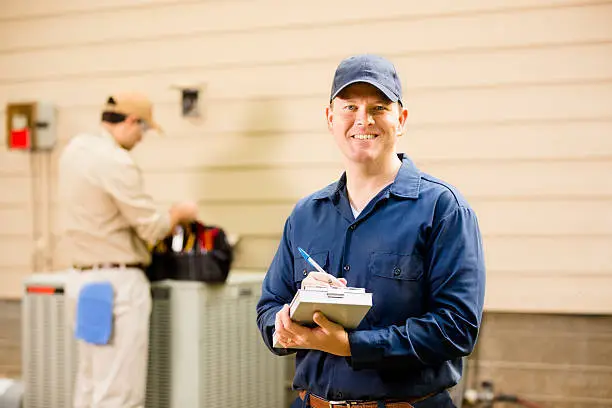
Preventing ice formation involves regular maintenance and addressing potential issues before they become serious problems.
Regular Maintenance Schedule
Creating a maintenance schedule for your AC unit can keep it running efficiently and prevent ice formation. Key maintenance tasks include:
- Bi-Annual Inspections: Schedule professional inspections in the spring and fall to catch issues early.
- Filter Replacement: Change air filters every 1-3 months, depending on usage and environmental factors.
- Coil Cleaning: Clean the evaporator and condenser coils annually to ensure efficient heat exchange.
- Duct Inspection: Have your ductwork inspected and cleaned every few years to maintain optimal airflow.
Regular maintenance is crucial to catch and address potential issues before they lead to more serious problems, ensuring your AC unit remains ice-free and operates efficiently.
Upgrading or Replacing Components
If your AC unit is older or frequently experiencing issues, it might be time to consider upgrades or a complete replacement:
- Upgrade to a High-Efficiency Unit: Newer models are more efficient and have features that prevent common issues like ice formation.
- Consider a Programmable Thermostat: This can help maintain consistent temperatures and reduce strain on your AC unit.
- Replace Aging Components: If individual components like the blower motor or coils are failing, replacing them can extend the life of your unit.
Upgrading or replacing components can significantly improve the performance and reliability of your AC unit, helping to prevent issues such as ice formation and ensuring consistent cooling.
When to Call a Professional
Sometimes, despite your best efforts, professional intervention is necessary. If you’ve addressed common causes and still, your AC unit freezes up, it’s time to call a professional. Indicators that professional help is needed include recurrent ice formation even after performing basic maintenance, complex issues like refrigerant leaks or major component failures, and persistent noises or foul smells that could indicate serious underlying problems.
Selecting a reliable HVAC service provider is crucial. Ensure the company is licensed and certified to work on HVAC systems, read customer reviews and testimonials to gauge the quality of service, and choose a company with extensive experience and knowledgeable technicians. Opt for providers who offer clear, upfront pricing without hidden fees.
For any air conditioning needs, feel free to contact our HVAC Service Solutions company in Canada. We’re here to help keep your home comfortable year-round.
Conclusion
In conclusion, regular maintenance and vigilant monitoring of warning signs will help prevent ice formation in your air conditioning unit and ensure its reliable operation. Stay proactive by keeping filters clean, maintaining coil cleanliness, and scheduling professional inspections periodically. Should you encounter any Air conditioner freeze troubles, don’t hesitate to reach out to HVAC Service Solutions for professional assistance and resolution of all your HVAC needs.
Frequent Asked Questions
How do I know if my AC unit has ice buildup?
You can identify ice buildup by observing visible signs such as frost or ice on the coils, pipes, or exterior of the unit. Additionally, if you notice reduced cooling efficiency or hear unusual sounds coming from your air conditioner freeze, it could indicate ice formation.
If your AC unit freezes up, it’s crucial to address the issue promptly to prevent further damage to the system. Ignoring ice buildup can lead to decreased efficiency, increased energy consumption, and potential damage to components like the compressor.
What causes ice to form on the AC unit?
Ice formation on the AC unit can occur due to various factors. Common causes include restricted airflow, low refrigerant levels, and dirty coils. When airflow is restricted, the evaporator coil gets too cold, causing condensation to freeze. Similarly, low refrigerant levels or dirty coils can disrupt the refrigeration cycle, leading to ice buildup.
To prevent ice formation in your air conditioner, regular maintenance is essential. This includes changing air filters every 1-3 months to maintain proper airflow, cleaning the coils annually to ensure efficient heat exchange, and scheduling professional inspections to detect and address any issues early on.
How can I prevent ice formation on my AC unit?
Preventing ice formation on your air conditioner involves regular maintenance and addressing potential issues before they escalate. Keeping filters clean is crucial as clogged filters can restrict airflow and cause the evaporator coil to freeze. Additionally, regular coil cleaning and professional inspections help maintain optimal system performance and prevent an ice air conditioner.
By staying proactive and following a maintenance schedule, you can minimize the risk of ice buildup and ensure your AC unit operates efficiently year-round. If you notice any signs of ice formation or reduced cooling efficiency, it’s essential to take immediate action to prevent further damage to your system.
How often should I replace air filters?
Air filters should typically be replaced every 1-3 months, depending on usage and environmental factors. Clogged filters can restrict airflow, causing the evaporator coil to get too cold and leading to ice formation on the AC unit.
Regular filter replacement is essential for maintaining proper airflow and preventing ice buildup. Neglecting to replace filters can not only reduce the efficiency of your AC unit but also increase the risk of damage to components and higher energy bills.
Can I clean the AC coils myself?
Yes, you can clean the coils yourself using a soft brush, vacuum cleaner, or coil cleaner spray. Dirty coils can impede heat exchange and lead to ice formation on the AC unit. However, for thorough cleaning and to ensure no damage occurs to delicate components, professional maintenance is recommended periodically.
Cleaning the coils annually is essential for maintaining optimal system performance and preventing an ice air conditioner. It helps remove dirt, dust, and debris that can accumulate over time and inhibit heat transfer, leading to reduced efficiency and potential damage to the unit.
What should I do if my AC unit keeps freezing up?
If your AC unit keeps freezing up, it’s crucial to take immediate action to prevent further damage. Turn off the unit to stop the cooling cycle and allow the ice to melt completely. Address potential causes such as restricted airflow, low refrigerant levels, or dirty coils to prevent an ice air conditioner from recurring.
Persistent ice formation on your AC unit can indicate underlying issues that require professional attention. Contacting a qualified HVAC technician to diagnose and resolve the problem can help restore your unit’s efficiency and prevent further damage to the system.
How can I improve the efficiency of my AC unit?
Improving the efficiency of your AC unit involves several measures, including regular maintenance and upgrades. Keeping filters clean, ensuring proper airflow, and cleaning the coils annually can help prevent ice formation and ensure optimal system performance.
Additionally, upgrading to a high-efficiency unit or installing a programmable thermostat can help maintain consistent temperatures and reduce strain on your AC unit. These upgrades can improve overall efficiency and comfort while reducing energy consumption and preventing air conditioner freeze.
What are the signs of a refrigerant leak?
Signs of a refrigerant leak include hissing or bubbling noises, reduced cooling efficiency, and persistent ice formation on the coils. A refrigerant leak can lead to decreased system performance and potential damage to components if left unaddressed.
If you suspect a refrigerant leak, it’s essential to contact a professional HVAC technician for inspection and repair. Continuing to operate the AC unit with a refrigerant leak can result in further damage and increased energy bills. Addressing the issue promptly can help restore your unit’s efficiency and prevent air conditioner freeze.
When should I call a professional HVAC service?
You should consider calling a professional HVAC service if you experience persistent issues such as recurrent ice formation on your AC unit, despite performing basic maintenance. Complex problems like refrigerant leaks or major component failures require expert handling to prevent further damage and ensure optimal system performance.
Additionally, if you notice unusual noises or smells coming from your AC unit, it’s essential to seek professional assistance. These signs could indicate serious underlying issues that need immediate attention to prevent air conditioner freeze and ensure the safety and efficiency of your HVAC system.
How do I choose the right HVAC service provider?
Choosing the right HVAC service provider is crucial for ensuring quality service and reliable repairs. Look for licensed and certified companies with positive reviews and experienced technicians. Transparency in pricing and upfront communication about services and fees are also important factors to consider when selecting an HVAC service provider. By choosing a reputable and trustworthy company like HVAC Service Solutions, you can rest assured that your HVAC needs will be met with professionalism and expertise.
Share

